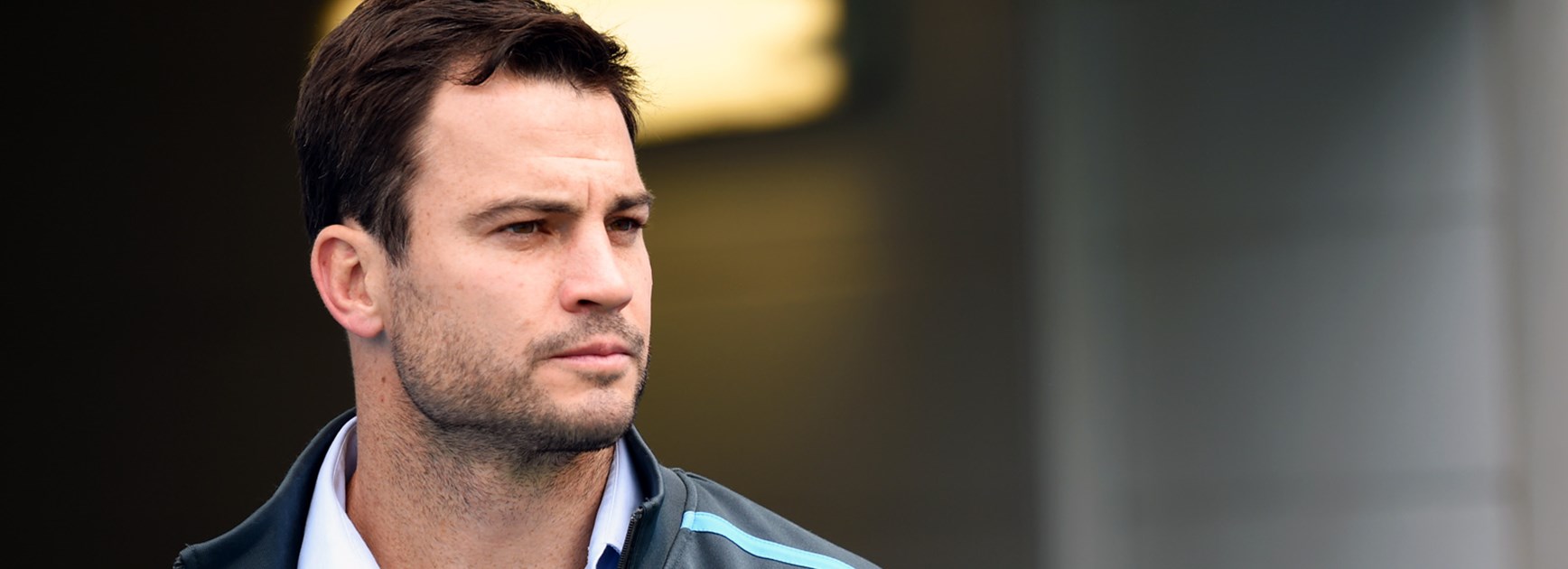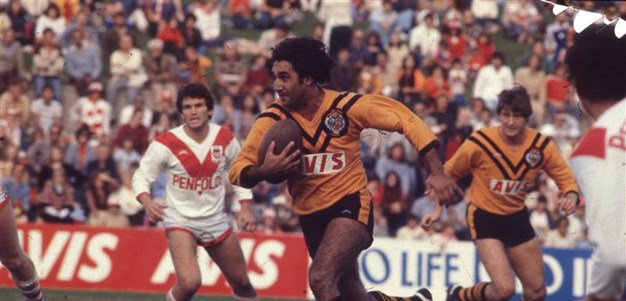
When South Sydney superstar Greg Inglis admitted himself into a mental health facility back in May, David Shillington knew immediately that it would help more than just one man.
After coming to terms with the fact that his body had taken all the punishment it could handle in 12 years of playing in the front row in the Telstra Premiership and announcing his retirement in February, Shillington moved into the role of State of Mind Project Officer in Queensland, a full-time position funded by the Queensland Government that will see him visit 76 rugby league clubs throughout the state this year alone.
The 90-minute presentation that Shillington gives is designed to lessen the stigma associated with mental health and increase everyone's mental health literacy which in turn enables them to recognise symptoms and understand how best to respond.
"If these people can seek help it shows that other people can too."
David Shillington.
It also serves to open people's eyes to the depth of help that is available to them; that it's not a battle they must fight on their own and that much of the assistance they can receive is free of charge.
But nothing quite has the cut-through of a high profile person putting their hand up to ask for help which is why the likes of Inglis, Darius Boyd and Joel Thompson play such critical roles in the messages that Shillington and other State of Mind officers are trying to get across.
"When Greg Inglis went into a mental health care facility a while back first and foremost everyone was concerned for him and wished him all the best," Shillington tells NRL.com.
"Secondly I also heard a lot of commentary around how much of a good example it set for the rest of us. That if he can seek help, put his hand up and admit that he is struggling, that everyone else can as well.
"Hearing from those sorts of guys about their battles with mental health issues and the investment of time that they made to their mental health to come out the other side and manage it well helps in reducing the stigma.
"If we're rugby league people and we hold these players up high and they can suffer issues it shows that other people can too.
"And if these people can seek help it shows that other people can too."
"When one person shares one story it's like a domino effect. All of a sudden people want to share their stories."
Because he is himself a recognisable face Shillington has found that those whom he presents to feel comfortable in opening up to him with at times very personal issues and that the depth of the problem is far greater than he could possibly have imagined.
"I've been really shocked at the size of the problem," says Shillington, who announced his retirement from playing in February due to an ongoing shoulder injury.
"I'm not a councillor or a trained psychologist but I do have a lot of people approach and tell me what's going on in their lives and there are a lot of people doing it very, very tough out there for a variety of reasons.
"A lot of people are really uncomfortable talking about mental health issues with that stigma surrounding it but when one person shares one story it's like a domino effect. All of a sudden people want to share their stories.
"One time I stayed for over an hour after a session had finished just letting everyone else share their stories. No one had said anything for the first half of that session and then all of a sudden we couldn't stop people from talking.
"That's the big thing about speaking out. It encourages other people to let their guard down and share their stories."
Transitioning from their playing careers into the workforce can be when players are at their most vulnerable and even with his involvement with State of Mind Shillington has not been immune to the myriad of emotions that retired players go through.
The veteran of 215 first grade games, eight Origins and 14 Tests for Australia began preparing for retirement ever since coming into first grade with the Roosters in 2005 by engaging in study and working with clubs on their various community initiatives "which is a funny way to live your life for 12 years, not knowing whether you'll have your job the next year".
And while he is relishing the opportunity to immerse himself in a role now that allows him to make a genuine impact in the game that has been his life for so long, Shillington admits that he has had to reconcile the emotions that come with hanging up the boots.
"You go through a lot of emotions. I was 33 when I retired and I'd been playing first grade for 12 years so I'd definitely had my fair share of football but at the same time I still wanted more," Shillington says.
"It's a bit scary entering the real world. Footy is your domain, you know how to play footy and prepare each week, you love the challenge and you're hanging around with your mates. I was looking at going to work in an office environment so that unknown and lack of confidence that you can do things is pretty scary.
"When you retire a little bit early like I did all of a sudden you have to make a quick decision. I was still thinking I was going to play for another two or three years and then all of a sudden you have to make a decision which can be a bit of a surprise.
"I feel like I've really landed on my feet now and I feel quite confident in what I'm doing so it's worked out much better than I thought it would but there was definitely a lot of uncertainty there."
Read Matt Cecchin's powerful story
Read Reni Maitua's story on mental health
Read Joel Thompson's story
The importance of mental health
The NRL's State of Mind program is supported in partnership with expert health partners: Kids Helpline, The Black Dog Institute, headspace, Lifeline and New Zealand based organisation, Le Va.
For more information on the NRL's State of Mind program and other Community Programs that the NRL delivers, visit www.nrl.com/forchange
The 'Power For Change' campaign builds on the narrative of existing community programs and initiatives undertaken year-round by all levels of the Game and supported more broadly throughout communities.


